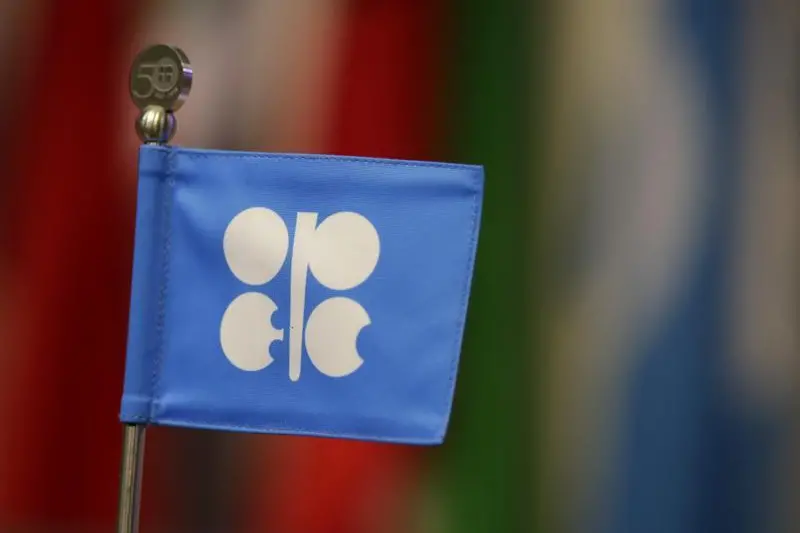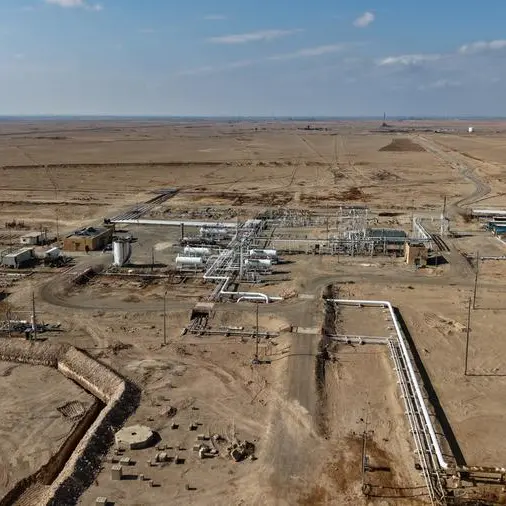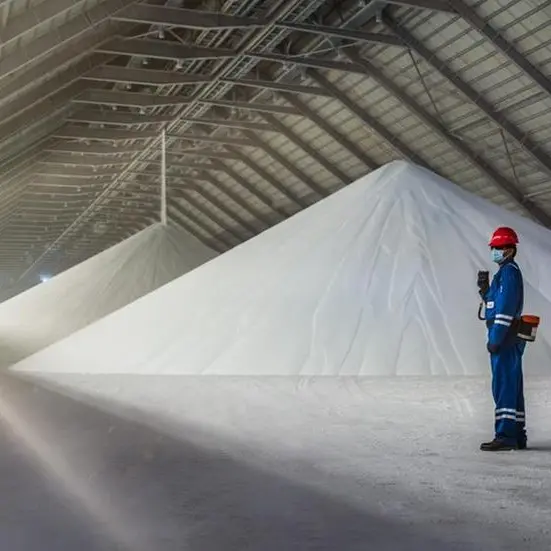PHOTO
(Adds quote from OPEC delegate para 8)
* OPEC strategy working but will take time - UAE
* "Couple" of OPEC members requested emergency meeting - Nigeria
* No meeting likely - two OPEC delegates
* Current market conditions create need for meeting - Nigeria
* Oil down 20 percent in 2016
By Rania El Gamal and Maha El Dahan
ABU DHABI, Jan 12 (Reuters) - The United Arab Emirates moved to quash talk of a potential emergency meeting of the Organization of the Petroleum Exporting Countries (OPEC) after Nigeria's oil minister said on Tuesday a "couple" of members had requested a gathering.
Benchmark Brent crude futures
LCOc1
slipped towards $30 a barrel to a near 12-year low before rising slightly. They have shed almost three-quarters of their value since mid-2014 due to oversupply.
Such market conditions supported an emergency meeting to review whether OPEC should change strategy, Nigerian Minister of State for Petroleum Resources Emmanuel Ibe Kachikwu told reporters on the sidelines of an energy conference in Abu Dhabi.
However, UAE Energy Minister Suhail bin Mohammed al-Mazroui later told the same conference the current OPEC strategy was working, adding that time was needed to allow this to happen -- perhaps between one and 1-1/2 years.
"I'm not convinced OPEC alone can change or can solely unilaterally change this strategy just because we have seen a low in the market," Mazroui said.
Mazroui added that while the first half of 2016 would be "tough" for the oil market, there would be a gradual recovery later in the year, aided by an expected drop in non-OPEC production.
The Nigerian minister did not specify which OPEC members wanting a meeting and said any such gathering would be in February or March. OPEC's next scheduled meeting is not until June 2.
But two OPEC delegates from outside the Gulf were sceptical an emergency conference would take place. "There won't be any meeting," said one of the OPEC delegates from an African OPEC country.
OPEC's strategy of maintaining production levels, instead of reducing supply to allow prices to recover, has been aimed at defending market share at the expense of higher-cost producers such as those in the U.S. shale sector.
The supply glut is likely to be exacerbated in 2016 by the return of Iranian supply to the market, once Western sanctions have been lifted.
"I think all the members including Iran have the right to increase their production. I don't think we are going to restrict anyone," Mazroui said.
Such prospects have led oil analysts to downgrade their forecasts in recent days, with Standard Chartered saying prices could drop to $10 a barrel.
The likelihood of a meeting taking place will hinge on the attitude of OPEC heavyweight Saudi Arabia, which has been at the vanguard of resistance to a production cut.
"Saudi Arabia has never held the position that it does not want to talk," Kachikwu said. "In fact, it was very supportive of a meeting before June, at the time when we held the December meeting, if (there was a) consensus call for it."
(Additional reporting by Alex Lawler; Writing by David French; Editing by Jason Neely and Dale Hudson) ((davidj.french@thomsonreuters.com; +971 4 362 5864; Reuters Messaging: davidj.french.thomsonreuters.com@reuters.net))
* OPEC strategy working but will take time - UAE
* "Couple" of OPEC members requested emergency meeting - Nigeria
* No meeting likely - two OPEC delegates
* Current market conditions create need for meeting - Nigeria
* Oil down 20 percent in 2016
By Rania El Gamal and Maha El Dahan
ABU DHABI, Jan 12 (Reuters) - The United Arab Emirates moved to quash talk of a potential emergency meeting of the Organization of the Petroleum Exporting Countries (OPEC) after Nigeria's oil minister said on Tuesday a "couple" of members had requested a gathering.
Benchmark Brent crude futures
Such market conditions supported an emergency meeting to review whether OPEC should change strategy, Nigerian Minister of State for Petroleum Resources Emmanuel Ibe Kachikwu told reporters on the sidelines of an energy conference in Abu Dhabi.
However, UAE Energy Minister Suhail bin Mohammed al-Mazroui later told the same conference the current OPEC strategy was working, adding that time was needed to allow this to happen -- perhaps between one and 1-1/2 years.
"I'm not convinced OPEC alone can change or can solely unilaterally change this strategy just because we have seen a low in the market," Mazroui said.
Mazroui added that while the first half of 2016 would be "tough" for the oil market, there would be a gradual recovery later in the year, aided by an expected drop in non-OPEC production.
The Nigerian minister did not specify which OPEC members wanting a meeting and said any such gathering would be in February or March. OPEC's next scheduled meeting is not until June 2.
But two OPEC delegates from outside the Gulf were sceptical an emergency conference would take place. "There won't be any meeting," said one of the OPEC delegates from an African OPEC country.
OPEC's strategy of maintaining production levels, instead of reducing supply to allow prices to recover, has been aimed at defending market share at the expense of higher-cost producers such as those in the U.S. shale sector.
The supply glut is likely to be exacerbated in 2016 by the return of Iranian supply to the market, once Western sanctions have been lifted.
"I think all the members including Iran have the right to increase their production. I don't think we are going to restrict anyone," Mazroui said.
Such prospects have led oil analysts to downgrade their forecasts in recent days, with Standard Chartered saying prices could drop to $10 a barrel.
The likelihood of a meeting taking place will hinge on the attitude of OPEC heavyweight Saudi Arabia, which has been at the vanguard of resistance to a production cut.
"Saudi Arabia has never held the position that it does not want to talk," Kachikwu said. "In fact, it was very supportive of a meeting before June, at the time when we held the December meeting, if (there was a) consensus call for it."
(Additional reporting by Alex Lawler; Writing by David French; Editing by Jason Neely and Dale Hudson) ((davidj.french@thomsonreuters.com; +971 4 362 5864; Reuters Messaging: davidj.french.thomsonreuters.com@reuters.net))





















